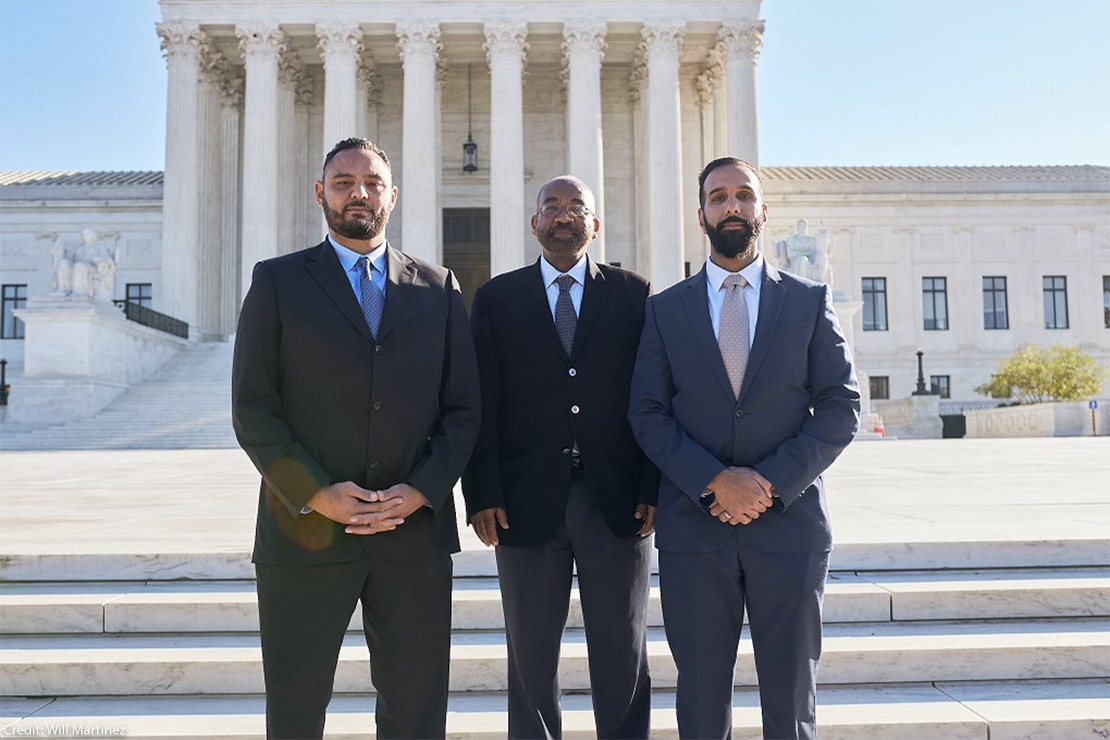Surveillance by Other Agencies
FBI v. Fazaga
In a case scheduled to be argued before the U.S. Supreme Court on November 8, 2021, three Muslim Americans are challenging the FBI’s secret spying on them and their communities based on their religion, in violation of the Constitution and federal law. In what will likely be a landmark case, the plaintiffs — Yassir Fazaga, Ali Uddin Malik, and Yasser Abdelrahim — insist that the FBI cannot escape accountability for violating their religious freedom by invoking “state secrets.” The plaintiffs are represented by the Center for Immigration Law and Policy at UCLA School of Law, the ACLU of Southern California, the American Civil Liberties Union, the Council for American Islamic Relations, and the law firm of Hadsell Stormer Renick & Dai.
Status: Closed (Judgment)
View Case
Learn About Surveillance by Other Agencies
All Cases
1 Surveillance by Other Agencies Case

Court Case
Feb 2015
Surveillance by Other Agencies
Amnesty v. Clapper - Challenge to FISA Amendments Act
The Foreign Intelligence Surveillance Act (FISA), enacted by Congress after the abuses of the 1960s and 70s, regulates the government’s conduct of intelligence surveillance inside the United States. It generally requires the government to seek warrants before monitoring Americans’ communications. In 2001, however, President Bush authorized the National Security Agency to launch a warrantless wiretapping program, and in 2008 Congress ratified and expanded that program, giving the NSA almost unchecked power to monitor Americans’ international phone calls and emails. In February 2013, the Supreme Court dismissed the ACLU's lawsuit challenging the law.
Explore case
Court Case
Feb 2015

Surveillance by Other Agencies
Amnesty v. Clapper - Challenge to FISA Amendments Act
The Foreign Intelligence Surveillance Act (FISA), enacted by Congress after the abuses of the 1960s and 70s, regulates the government’s conduct of intelligence surveillance inside the United States. It generally requires the government to seek warrants before monitoring Americans’ communications. In 2001, however, President Bush authorized the National Security Agency to launch a warrantless wiretapping program, and in 2008 Congress ratified and expanded that program, giving the NSA almost unchecked power to monitor Americans’ international phone calls and emails. In February 2013, the Supreme Court dismissed the ACLU's lawsuit challenging the law.
